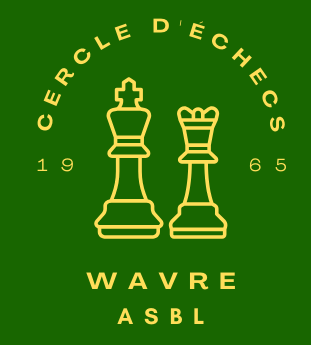ChessBase
Chess News
-
New: ChessBase Magazine #230
Tata Steel 2026: Analyses by Bluebaum, Giri, L'Ami, Woodward and many more – News from the ‘Erigabava’ Sicilian: Yago Santiago promotes 1.e4 c5 2.Nf3 e6 3.d4 cxd4 4.Nxd4 Nf6 5.Nc3 Bb4! – Slav Marshall Gambit: white queen on d8! Lars Schandorff examines 1.d4 d5 2.c4 c6 3.Nc3 e6 4.e4 dxe4 5.Nxe4 Bb4+ 6.Bd2 Qxd4 7.Bxb4 Qxe4+ 8.Be2 Na6 9.Ba5 f6!? – Easy to remember, important to know: Dorian Rogozenco shows a classic fortress motif with king against knight + edge pawn – Strategy: the right double pawn! Mihail Marin explains when to knock out the centre with fxg and when not to, and much more. Includes ChessBase Book for iPad, tablet, etc. -
Prague Masters: Keymer beats Anton, Aravindh misses big chance
One game had a decisive result in round seven of the Masters at the Prague Chess Festival, as Vincent Keymer defeated David Anton to return to a fifty-percent score. Sole leader Jorden van Foreest held a tense draw against Nodirbek Abdusattorov, while Aravindh Chithambaram missed a winning chance against Nodirbek Yakubboev. The remaining encounters were hard-fought draws. | Photo: Petr Vrabec / Prague Chess Festival -
Prague Challengers: Yuffa and Nemec grab crucial wins
Three decisive games marked round seven of the Challengers at the Prague International Chess Festival. Leader Vaclav Finek held a long endgame against top seed Benjamin Gledura and retains a full-point lead with two rounds remaining. Meanwhile, Daniil Yuffa and Jachym Nemec (pictured) moved into joint second place after winning their games, while Surya Shekhar Ganguly scored his first victory of the event. | Photo: Petr Vrabec / Prague Chess Festival -
The American Cup - Live!
The American Cup, one of the United States' premier chess tournaments, returns to Saint Louis. Now in its fifth year, the event runs on March 3-12 at the Saint Louis Chess Club, featuring sixteen of America's top chess talents. With $400,000 in prize money up for grabs, the competitors will prove their mettle under mounting pressure in the double-elimination knockout format. | Follow the games live with expert commentary starting at 19.00 CET (14.00 ET, 23.30 IST) | Pictured: Tatev Abrahamyan | Photo: Lennart Ootes -
The Grandmaster Mindset: An interview with GM Alojzije Jankovic
Together with Keti Tsataslashvili, Alojzije Jankovic works as a commentator at the Prague Chess Festival – a role that suits him well. The Croatian grandmaster (peak Elo 2593) had his own chess show on Croatian television for many years and runs a YouTube channel. He was editor-in-chief of the magazine ‘Sahovski Glasnik’, has written chess books, studied economics and is vice-president of the European Chess Union. In an interview with ChessBase, he talks about his passion for chess, his career, his favourite player, chess in film, and explains how systematic thinking can help you play better and be more successful in life. -
Women's day in Prague: GM Pia Cramling and Czech star Ana Geislerova celebrate young talents
During the rest day of the Prague International Chess Festival, organisers held a special programme devoted to supporting women's chess and highlighting the Futures tournament for young female players. Swedish legend Pia Cramling gave a lecture and a simultaneous exhibition, while Czech actress Aňa Geislerová attended the event and received an introduction to the game from Indian star Divya Deshmukh. | Photo: Petr Vrabec / Prague Chess Festival -
News on the 1896 Schiffers vs Steinitz Match
Wilhelm Steinitz had lost his World Championship title to Emanuel Lasker in 1894, but he still retained the right to a return match. That rematch was scheduled to take place in Moscow at the end of 1896. Before that, however, Steinitz played a training match against Emanuel Schiffers. Join us on a brief journey back in time to Rostov-on-Don in 1896. -
Endgame Challenge Solutions
Were you able to solve the challenge positions we gave you last week? Were you able to defeat the diagrams, which defended tenatiously? Today we bring you all solutions, with very instructive video explanations by Jared Modica, a chess content creator from Austin, Texas. He shows us how to solve tatical lines of play, and how to handle pawns in endgames. -
Most attractive chess players
Who is your favourite chess player – of all time, from the history of chess? Whose games do you enjoy the most? Is it one of the greats from the 19th century, the world champion legends of the twentieth? Or is it a player who is still active? Tell us your choices – and we will compare them with what a chess AI chooses, after evaluating millions of games. -
ChessBase´26: A Players Guide (5)
"Many players use ChessBase, it is the most popular chess software by far, writes GM Iniyan Pa. "Yet, not many people are fully aware of all of its features, and fail to utilise most of them. In this guide I have tried to show the features that I think are vital and important so that the user may gain the most out of the ChessBase. I hope it helps them in their development." We are deeply indebted to Iniyan for his remarkable five-part training review.
